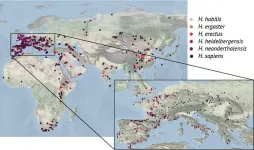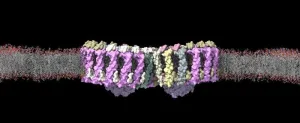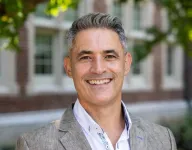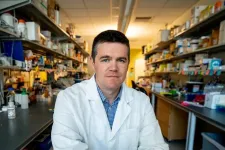(Press-News.org) COLUMBUS, Ohio – If you smugly believe you’re right in a disagreement with a friend or colleague, a new study suggests why you may actually be wrong.
Researchers found that people naturally assume they have all the information they need to make a decision or support their position, even when they do not.
The researchers called it the “illusion of information adequacy.”
“We found that, in general, people don’t stop to think whether there might be more information that would help them make a more informed decision,” said study co-author Angus Fletcher, a professor of English at The Ohio State University and member of the university’s Project Narrative.
“If you give people a few pieces of information that seems to line up, most will say ‘that sounds about right’ and go with that.”
The study was published today in the journal PLOS ONE. Fletcher completed the work with co-authors Hunter Gehlbach, an educational psychologist at Johns Hopkins University’s School of Education, and Carly Robinson, a senior researcher at Stanford University’s Graduate School of Education.
The study involved 1,261 Americans who participated online.
They were split into three groups who read an article about a fictional school that lacked adequate water. One group read an article that only gave reasons why the school should merge with another that had adequate water; a second group’s article only gave reasons for staying separate and hoping for other solutions; and the third control group read all the arguments for the schools merging and for staying separate.
The findings showed that the two groups who read only half the story – either just the pro-merging or the just the anti-merging arguments – still believed they had enough information to make a good decision, Fletcher said. Most of them said they would follow the recommendations in the article they read.
“Those with only half the information were actually more confident in their decision to merge or remain separate than those who had the complete story,” Fletcher said.
“They were quite sure that their decision was the right one, even though they didn’t have all the information.”
In addition, participants who had half the information said that they thought that most other people would make the same decision they did.
There was one piece of good news from the study, Fletcher said. Some of the participants who had read only one side of the story later read the arguments for the other side. And many of those participants were willing to change their minds about their decision, once they had all the facts.
That may not work all the time, especially on entrenched ideological issues, he said. In those cases, people may not trust new information, or they may try to reframe it to fit their preexisting views.
“But most interpersonal conflicts aren’t about ideology. They are just misunderstandings in the course of daily life,” Fletcher said.
These findings offer a complement to research on what is called naïve realism, the belief people have that their subjective understanding of a situation is the objective truth, Fletcher explained. Research on naïve realism often focuses on how people have different understandings of the same situation.
But the illusion of information adequacy shows that people may share the same understanding – if they both have enough information.
Fletcher, who studies how people are influenced by the power of stories, said people should make sure they have the full story about a situation before they take a stand or make a decision.
“As we found in this study, there’s this default mode in which people think they know all the relevant facts, even if they don’t,” he said.
“Your first move when you disagree with someone should be to think, ‘Is there something that I’m missing that would help me see their perspective and understand their position better?’ That’s the way to fight this illusion of information adequacy.”
END
Why people think they’re right, even when they are wrong
Study finds people may incorrectly believe they have all the facts
2024-10-09
ELSE PRESS RELEASES FROM THIS DATE:
New study shows how muscle energy production is impaired in type 2 diabetes
2024-10-09
A new study from Karolinska Institutet, published in Science Translational Medicine, shows that people with type 2 diabetes have lower levels of the protein that breaks down and converts creatine in the muscles. This leads to impaired function of the mitochondria, the 'powerhouses' of the cell.
Creatine is a natural compound in the body that is also found in foods such as meat and fish. It is also a popular supplement for improving exercise performance as it can make muscles work harder and longer before they become fatigued. Despite creatine's ...
Early human species benefited from food diversity in steep mountainous terrain
2024-10-09
A new study published in the journal Science Advances [1] by researchers at the IBS Center for Climate Physics (ICCP) at Pusan National University in South Korea shows that the patchwork of different ecosystems found in mountainous regions played a key role in the evolution of humans.
A notable feature of the archeological sites of early humans, members of the genus Homo known as hominins, is that they are often found in and near mountain regions. Using an extensive dataset of hominin fossils and artifacts, along with high-resolution landscape data and a 3-million-year-long simulation of Earth’s climate, the team of scientists from ICCP have provided a clearer picture of how ...
Researchers discover new insights into bacterial photosynthesis
2024-10-09
Researchers at the University of Liverpool and collaborators have discovered new understanding of bacterial photosynthesis.
Using cutting-edge techniques, investigators have unveiled intricate detailed images of the key photosynthetic protein complexes of purple bacteria. These images shed new light on how these microorganisms harness solar energy.
The study, published today, not only advances scientists’ understanding of bacterial photosynthesis but also has potential applications in the development of artificial photosynthetic systems for clean energy production.
Like plants, many ...
Former United States Air Force surgeon general to lead Military Health Institute at UT Health San Antonio
2024-10-09
The University of Texas Health Science Center at San Antonio (UT Health San Antonio) announces the appointment of retired Lt. Gen. Robert Miller, MD, MBA, MSS, FAAP, FACHE, FACPE, as the new Executive Director of the Military Health Institute at UT Health San Antonio. Miller will assume his role, effective October 15.
Miller joins UT Health San Antonio with more than 30 years of service in the United States Air Force, where he held several top leadership roles. Throughout his distinguished career, Miller served as command surgeon, director of education ...
Journal of Nutrition Education and Behavior announces 2024 Best Article, Best Research Brief, and GEM Awards
2024-10-09
Philadelphia, October 9, 2024 – The Journal of Nutrition Education and Behavior (JNEB) is pleased to announce the 2024 Best Article, Best Research Brief, and GEM (Great Educational Material) awards. These awards were presented at the Society for Nutrition Education and Behavior's (SNEB) 2024 International Conference, held July 29 – August 1 in Knoxville, TN, and hosted online. These awards recognize the authors of the outstanding articles in each category published in the prior year in JNEB, as judged by members of the ...
NYU Tandon School of Engineering study maps pedestrian crosswalks across entire cities, helping improve road safety and increase walkability
2024-10-09
As pedestrian fatalities in the United States reach a 40-year high, a novel approach to measuring crosswalk lengths across entire cities could provide urban planners with crucial data to improve safety interventions.
NYU Tandon School of Engineering researchers Marcel Moran and Debra F. Laefer published the first comprehensive, city-wide analysis of crosswalk distances in the Journal of the American Planning Association. Moran is an Urban Science Faculty Fellow at the Center for Urban Science + Progress (CUSP), and Laefer is a Professor of Civil and Urban Engineering and CUSP faculty member.
"In general, lots of important data related ...
Louis V. Gerstner, Jr. family donates $25 million to establish Gerstner Scholars Program in AI Translation at Mayo Clinic
2024-10-09
ROCHESTER, Minn. — A $25 million gift from the Louis V. Gerstner, Jr. family will establish the Gerstner Scholars Program in AI Translation at Mayo Clinic. Through this program, junior and early-career clinicians and clinician-investigators will collaborate with leading experts in artificial intelligence (AI), data science and informatics to drive breakthrough cures for patients.
“We are deeply grateful to Lou and Robin Gerstner for their long-standing friendship and support,” says Gianrico Farrugia, M.D., Mayo Clinic's president and CEO. “Lou’s remarkable generosity over many years has been instrumental in ...
UTIA entomologist elected president of SIP
2024-10-09
Juan Luis Jurat-Fuentes, professor in the Department of Entomology and Plant Pathology at the University of Tennessee Institute of Agriculture, was elected to serve as president of the Society for Invertebrate Pathology (SIP). Jurat-Fuentes officially began his appointment at the society’s 56th annual meeting, held July 28 – August 1 in Vienna, Austria.
“Being elected by the SIP members as president is humbling and a great honor. I have big shoes to fill in this role as previous SIP executive councils were led by outstanding leaders,” Jurat-Fuentes said.
Jurat-Fuentes has a long history of ...
Rice bioengineers awarded $3.4M for project to end polio
2024-10-09
HOUSTON – (Oct. 9, 2024) – Rice University bioengineer Kevin McHugh has been awarded $3.4 million from the Bill & Melinda Gates Foundation for a project to incorporate protection against poliomyelitis (polio) into the combination vaccine that protects against five common and dangerous childhood diseases.
The research could help the polio eradication effort and play an instrumental role in improving access to immunization in low-resource settings ⎯ an important part of meeting sustainable development goals and achieving equity in health ...
Effects of environmental factors on Southeast Brazil’s coastal biodiversity surpass those of ecological processes
2024-10-09
Sea surface temperature, wave energy and freshwater discharge from rivers influence the abundance and size of the marine organisms that inhabit rocky shores along the coast of Southeast Brazil more than ecological processes such as competition and predation. In areas where the water is colder, such as the Lakes Region (Região dos Lagos) in Rio de Janeiro state, marine organisms are 25%-100% larger than in areas where it is warmer, such as the coast of São Paulo state.
These are the main conclusions of a study conducted by researchers affiliated with the Federal University of São Paulo (UNIFESP) in partnership with colleagues at the State University of Northern Rio de ...
LAST 30 PRESS RELEASES:
Students run ‘bee hotels’ across Canada - DNA reveals who’s checking in
SwRI grows capacity to support manufacture of antidotes to combat nerve agent, pesticide exposure in the U.S.
University of Miami business technology department ranked No. 1 in the nation for research productivity
Researchers build ultra-efficient optical sensors shrinking light to a chip
Why laws named after tragedies win public support
Missing geomagnetic reversals in the geomagnetic reversal history
EPA criminal sanctions align with a county’s wealth, not pollution
“Instead of humans, robots”: fully automated catalyst testing technology developed
Lehigh and Rice universities partner with global industry leaders to revolutionize catastrophe modeling
Engineers sharpen gene-editing tools to target cystic fibrosis
Pets can help older adults’ health & well-being, but may strain budgets too
First evidence of WHO ‘critical priority’ fungal pathogen becoming more deadly when co-infected with tuberculosis
World-first safety guide for public use of AI health chatbots
Women may face heart attack risk with a lower plaque level than men
Proximity to nuclear power plants associated with increased cancer mortality
Women’s risk of major cardiac events emerges at lower coronary plaque burden compared to men
Peatland lakes in the Congo Basin release carbon that is thousands of years old
Breadcrumbs lead to fossil free production of everyday goods
New computation method for climate extremes: Researchers at the University of Graz reveal tenfold increase of heat over Europe
Does mental health affect mortality risk in adults with cancer?
EANM launches new award to accelerate alpha radioligand therapy research
Globe-trotting ancient ‘sea-salamander’ fossils rediscovered from Australia’s dawn of the Age of Dinosaurs
Roadmap for Europe’s biodiversity monitoring system
Novel camel antimicrobial peptides show promise against drug-resistant bacteria
Scientists discover why we know when to stop scratching an itch
A hidden reason inner ear cells die – and what it means for preventing hearing loss
Researchers discover how tuberculosis bacteria use a “stealth” mechanism to evade the immune system
New microscopy technique lets scientists see cells in unprecedented detail and color
Sometimes less is more: Scientists rethink how to pack medicine into tiny delivery capsules
Scientists build low-cost microscope to study living cells in zero gravity
[Press-News.org] Why people think they’re right, even when they are wrongStudy finds people may incorrectly believe they have all the facts





